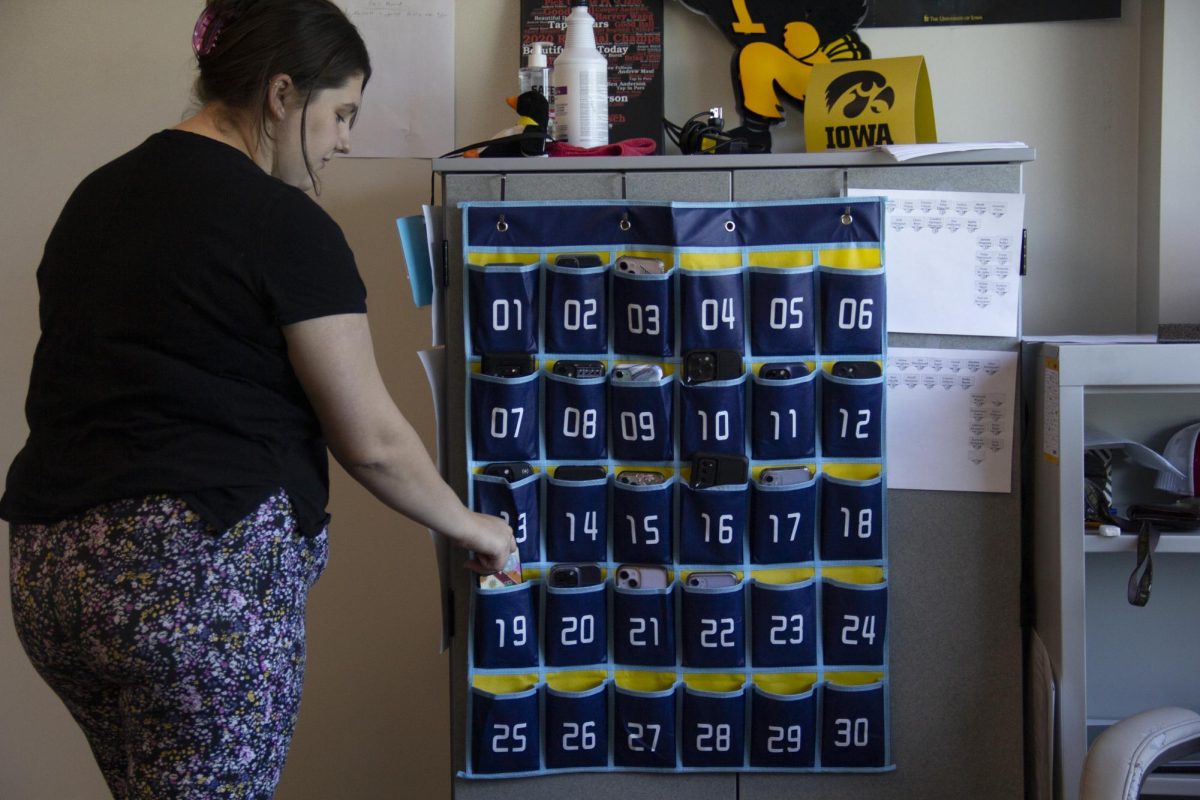Central introduced new rules about attendance and phones as part of a rebranded (Be)3 campaign for the 2023-24 school year.
The rules and updates were made with a goal of improving Central’s learning environment, Principal Jackie Thornton said.
(Be)3 was originally an anti-bullying campaign, but for 2023 it was changed to represent the phrases “Be present,” “Be engaged” and “Be respectful.”
“We needed to be a little bit more intentional in the communication with students because it had become something that wasn’t widely known to students because the anti-bullying campaign kind of fell off during the pandemic,” Thornton said. “That gave us an opportunity for us to relaunch it.”
“Be present” was designed to address concerns with chronic absenteeism—missing 15 days or more—which has become more common in recent years.
“We found that the rate of chronic absenteeism was creeping up, so this was an effort to be proactive,” said Steve Jeretina, Assistant Principal for Curriculum and Instruction. “[We want] to make sure that those attendance rates are raised, [and we’ve] started to move back in the direction we want them to go.”
Jeretina attributes that decrease to Central’s attendance policies, which make punishments for absenteeism harsher. If a student has over four truancies (being absent for a portion of the school day without valid cause) they might lose credit for that class or be dropped.
Most of those procedures—including a dean referral, contacting parent(s)/guardian(s) and a conversation with the teacher if a student is absent for 10 days—were already in place before the pandemic. The change is more about enforcement than a procedural change, according to Jeretina.
The addition of “Be engaged” to the (Be)3 campaign was created to reduce phone usage in classroom environments.
Department Heads met in May to talk about changes they wanted to make for the 2023-24 school year, and phone usage came out as one of the greatest issues. The new procedure requires that phones and earbuds be put away in backpacks or a “phone jail,” depending on teacher preference.
Many teachers noticed a lack of socialization and decreased attention during classes because of phone usage. The new procedures attempt to bring focus and community back into the classroom.
“Every teacher starts class with the phone being away, whether that’s in a backpack or in a phone holder,” Thornton said. “If it’s appropriate, then cell phones could be used [after class-opening activities have ended], but the agreement is that we’re trying to protect that classroom space from distraction.”
Violations of the phone policy follow a standardized three-step intervention plan. After one violation, the student receives a warning; the teacher will call home explaining the problem at two violations; and every violation after that is a dean referral.
However, there are some exceptions to the rule for teachers who need phones to be used in the classroom. Fine Arts teacher Chris Hodge is one of those teachers.
“In photography, there are some really great uses [for phones] when we’re doing handmade negatives; it’s good as a light meter,” Hodge said. “We did a cell phone project last week, [but] I try to be really clear about when it’s okay for you to take out your phone and when to put the phone back.”
The final portion of the new (Be)3 campaign is “Be respectful.” According to Thornton, this is a combination of the earlier anti-bullying campaign.
The original (Be)3 was an anti-bullying campaign [meaning] be the third person in the situation, be the person to distract, be the person to support or be the person to report,” Thornton said. “We kept that as part of ‘be respectful.’”
Ultimately, the goal of the new changes is to help students’ social-emotional learning.
“There’s learning that some people might be perceiving as stricter rules or a potential consequence, but we’re really looking more at the positive rather than the negative of it,” Jeretina said. “[We’re] helping students understand the value of social behaviors.”





